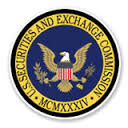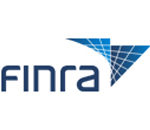When the average American looks back on the close of another holiday season, they think about all the longstanding traditions that were renewed yet again – the family gatherings, the holiday parties, the celebrations of faith, and the resolutions for self improvement. When we here at the Pay-to-Play Law Blog look back on the end of the holiday season, we gaze warmly back at the Federal Register and determine which of our favorite regulatory agencies left a surprise under the tree for our loyal readers. We know, we know… we’re the Ebenezer Scrooge of legal blogs.
One of this year’s regulatory gift givers is a repeat holiday patron – the Financial Industry Regulatory Authority (FINRA) – that preliminarily proposed an initial suite of pay-to-play provisions in late 2014. Those provisions, although modeled closely on Securities and Exchange Commission (SEC) Rule 206(4)-5, included unique compensation disgorgement and disclosure elements that drew the attention of many in the regulated community. After consideration of the public comments surrounding those elements and the regulatory proposals as a whole, FINRA reconsidered the structure of its initial provisions and submitted the newly framed Rule 2030(a) and Rule 4580 to the SEC on December 24th for adoption.
From a pay-to-play perspective, Rule 2030(a) is where the rubber meets the road. If formally enacted, Rule 2030(a) would effectively restrict the ability of FINRA member firms to engage in distribution or solicitation activities on behalf of registered investment advisers that provide or seek to provide investment advisory services to government entities if “covered employees” of the broker-dealers make prohibited political contributions. The proposal, like Rule 206(4)-5 and other federal pay-to-play rules, would not specifically ban or limit the amount of political contributions covered FINRA members and their covered associates can make to government officials. Rather, Rule 2030(a) seeks to impose a two-year “time out” on the earning of compensation for distribution or solicitation engagements with a government entity on behalf of an investment adviser when a FINRA member or its covered associate makes a disqualifying contribution.
For the purposes of the newly-proposed rule, a disqualifying contribution is defined as any political donation made to an official of a government entity that is valued at an aggregate value of more than $350 in an election year or more than $150 in a non-election. In the case of an inadvertent or mistaken contribution above these levels, Rule 2030(a) permits a broker-dealer to cure the potential pay-to-play violation without penalty so long as a refund of the donation is received within a four-month period of the initial contribution.
With the publication of the proposed rules in the Federal Register on December 30th, the regulated community now has just over two weeks left in the 21-day comment period to respond to the SEC with pertinent observations and concerns about both Rule 2030(a) and Rule 4580 (which represents a formal recitation of FINRA’s new recordkeeping requirements for broker-dealer members). For those of our readers who are interested in participating in the open comment process, submissions must be made on or before January 20, 2016 and may be filed online at https://www.sec.gov/cgi-bin/ruling-comments.
Following the completion of the formal notice and comment process and finalization of the provisions by the SEC, both FINRA rules should be put into effect in short order – likely during the second half of 2016 or early 2017. Broker-dealers looking to engage politically during the 2016 election cycle should take heed, monitor the situation accordingly, and ensure their compliance and recordkeeping systems are fully up-to-date. And we here at Pay-to-Play Law Blog will be sure to keep the regulated community posted on any future developments or changes.



